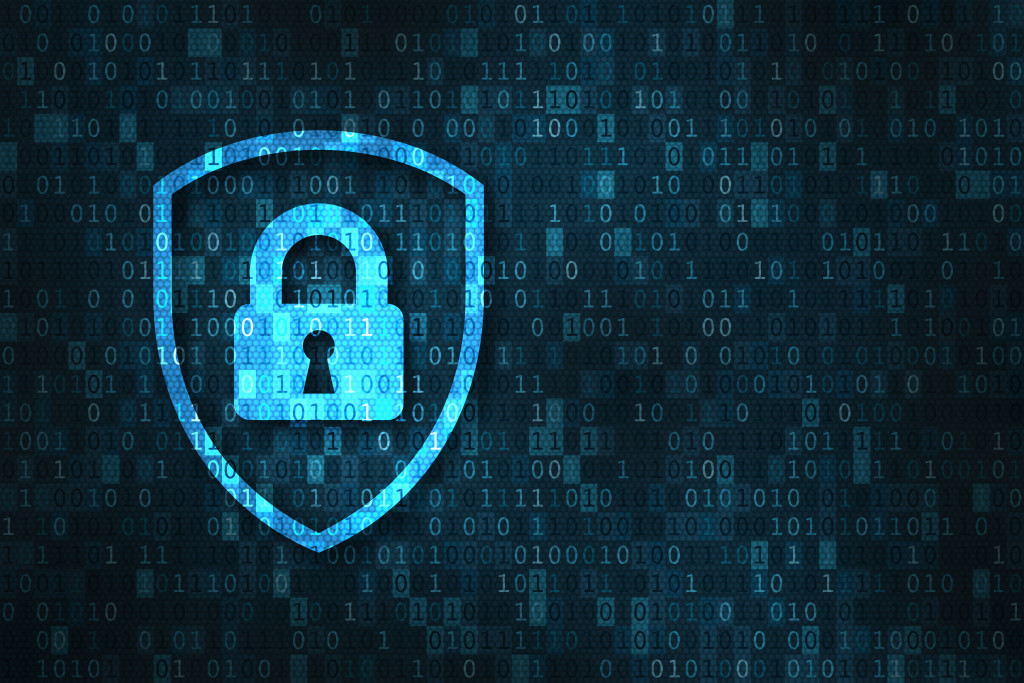- Have security policies in place to define the acceptable use of company systems and data protection measures.
- Educate employees on basic security protocols and procedures including password management and recognition of phishing emails.
- Hire professional cybersecurity services for auditing IT infrastructure, threat detection, and response strategies.
- Use antivirus software and malware protection and regularly scan your system and networks.
- Back up data regularly both onsite and offsite in a secure location.
You run a business and know cybersecurity is essential, but you don’t have the resources or skills to implement complex practices. You are not alone. Cybersecurity can be daunting for small businesses, but it doesn’t have to be complicated or expensive. This article provides five essential tips for implementing basic cybersecurity practices in your business.
1. Have Security Policies in Place
Having written policies and procedures helps ensure consistency across your organization regarding security protocols. Developing policies that define the acceptable use of company systems and data protection measures should be a priority. These will help protect your business from malicious actors. The National Institute of Standards and Technology (NIST) provides guidance on developing, maintaining, and auditing your security policies.
2. Educate Your Employees About Cybersecurity
No amount of technology can protect against human mistakes, so it is vital to have a strong culture of cybersecurity in your organization. Employee training is essential for educating staff on basic security protocols and procedures. This should include topics such as password management and recognition of phishing emails. Having a dedicated IT team or department responsible for training employees on best practices also helps ensure that information remains up-to-date.
3. Hire a Professional

Depending on your organizational size and complexity, it might be necessary to hire professional cybersecurity services. A professional can audit your IT infrastructure and provide recommendations for improving cybersecurity. They can also help you develop threat detection and response strategies. Additionally, they can provide ongoing monitoring and security services.
4. Use Antivirus Software and Malware Protection
Malicious software (malware) can significantly threaten your business, so having reliable antivirus and malware protection in place is important. This will help protect against malicious actors trying to steal or corrupt data on your systems. You should also ensure that this software is always up-to-date; regular scans of your system and networks should become part of your routine security practices.
5. Back Up Data Regularly
An effective backup system helps minimize potential losses due to cyberattacks. You should ensure that all data is backed up regularly, both onsite and offsite, and stored in a secure location. An effective data backup system also helps reduce the time it takes to restore your systems in case of a security breach or technical issue.
Commonly Asked Questions
What are some benefits of implementing basic cybersecurity practices?

Implementing basic cybersecurity measures can benefit your business, such as improved data security, excellent protection from malicious attacks, and reduced risk of financial loss due to cybercrime. Additionally, it can help build trust between you and your customers, as they will feel confident that their information is safe and secure with you.
What is the best way to audit my system for security vulnerabilities?
The best way to audit your system for security vulnerabilities is to hire a professional cybersecurity consultant or firm specializing in auditing networks and systems for potential weaknesses. They will be able to identify any areas of concern and provide you with recommendations for improving the overall security of your system. Additionally, they can provide you with best practices and training materials to help ensure the safety of both your data and that of your customers.
How often should I update my systems?
It is recommended that you update your systems regularly to stay ahead of potential threats or vulnerabilities. You should also be sure to install any available patches whenever possible, as this helps prevent malicious attacks from exploiting any existing flaws in your system.
What should I do if my business experiences a cyber attack?
If your business experiences a cyber attack, the first step should be to contain the damage by disconnecting any compromised systems or devices from your network. You should also contact your IT provider immediately and follow their instructions on how best to resolve the issue. Additionally, you should consider reporting the incident to law enforcement or other applicable authorities to alert them of the possible threat.
In Summary
Cybersecurity is a priority for businesses of any size, and it’s essential to implement basic cybersecurity practices to protect your data and systems from malicious actors. Following the tips outlined above can help ensure that your business is taking the necessary steps to secure its data and IT infrastructure. With these measures in place, you can rest assured that your business is in good hands.

